Laurence Vittes found himself impressed by the talent at the Netherlands Violin Competition in Utrecht, as well as swept away by the diverse array of non-classical styles at its sister Night of the Violin festival
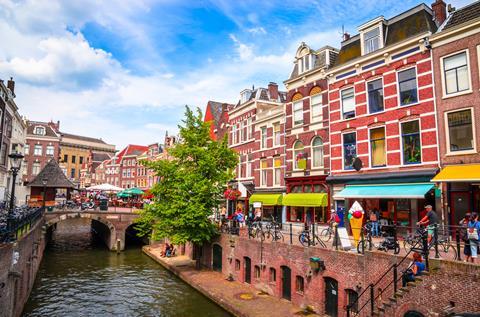
Discover more Featured Stories like this in The Strad Playing Hub.
Read more premium content for subscribers here
The Netherlands Violin Competition for Dutch nationals concluded its three-week 29th edition on 27 January by awarding Salomé Bonnema the top prize in the Oskar Back Prize category for competitors at the highest level (aged 18–26). The 22-year-old from Leiderdorp gave a performance of the Mendelssohn Concerto in E minor that was serene, elegant and perfectly in sync with the magnificently responsive Residentie Orchestra from The Hague under Jonathan Bloxham. Bonnema lent the music a youthful, soaring ease, paid full attention to the notes and met all the iconic technical challenges of speed and bowing in fresh unhurried ways that were a joy to hear. The audience also played its role, hanging on her every note and cheering warmly at the end.
Known for laureates like Janine Jansen, Jaap van Zweden and Liza Ferschtman, the competition has welcomed 122 participants in five age categories, every one of them a Dutch national, and an army of 45 jurors, most of them Dutch as well (the American Tessa Lark being one of the notable exceptions). The fact that the Netherlands Violin Competition is a national contest means that every participant, whether they win or lose, is a home-town hero. As was the case on my last visit in 2020, the atmosphere in the hall was electric.
The youngest of the three Oskar Back Prize finalists,18-year-old Kira van der Woerd, flirted with Lalo’s Symphonie espagnole brilliantly while battling a heavy cold and took home second prize (having also won the prize for best performance of Mayke Nas’s commissioned work, Unlock Your Full Potential, in the preliminary rounds). Charismatic 21-year-old Enzo Kok took wonderful chances with his impulsive Mendelssohn, reaching moments of pure genius, and took both the highly coveted audience prize and third prize overall.
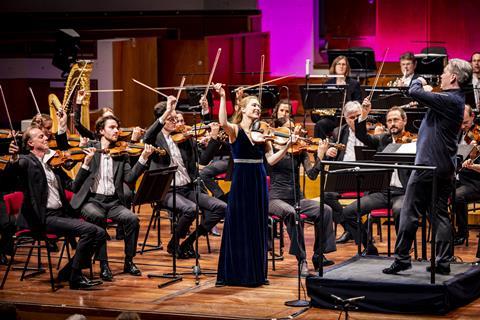
The competition’s director Aart-Jan van de Pol told me: ‘Our national violin competition is very much owned by Dutch violin culture: Dutch violin people, teachers, audiences, players. That helps a lot and gives tremendous energy to the event.’
Wouter Vossen, concertmaster of the Residentie Orchestra and a member of the Storioni Trio, described the competition as ‘more a part of the educational system than a career builder like the Sibelius, Indianapolis or Paganini competitions’. He takes pride in ‘the courage of the young finalists playing difficult repertoire in front of a big orchestra and a large crowd in a big hall and on the radio, all for the first time’. Distantly related to Adolf Busch, Vossen is himself a part of Dutch violin culture, having been mentored by Herman Krebbers, concertmaster of the Residentie Orchestra in the 1950s and later of the Royal Concertgebouw Orchestra. ‘We always kept in good touch,’ Vossen said. ‘Krebbers gave me all his trio parts with his notes, bowings and fingerings. A tremendous personal gift.’
While the jurors were making their decisions, the stage gave way for a change-of-pace set that turned out to be a sign of a major evolution of the competition in 2024. It was performed by a band called Moon Garden (violinist Noah Hassler-Forest, cellist Joshua Herwig and electric guitarist Ella Zirina), winner of the Young Creatives Prize (Jonge Makers Prijs) for non-classical violinist-led ensembles aged 18–26. The band’s appearance reflected the competition’s commitment to the new and the young which had been evident throughout the main event, notably in the requirement that Oskar Back Prize semi-finalists create a multidisciplinary performance including guest musicians and artists.
The competition’s commitment to the future had been showcased the night before when, for almost six hours, a festival for violinists called Night of the Violin had occupied the upper halls and floating performance spaces of the TivoliVredenburg in the centre of Utrecht. During this, nothing much was classical but everything was very violin. Curated by jazz violinist and improvisation guru Tim Kliphuis, the line-up featured Tessa Lark (who at the last minute also subbed for Pekka Kuusisto), Baroque master Shunske Sato, Royal Concertgebouw Orchestra deputy concertmaster Tjeerd Top, violinist, singer and composer Diamanda La Berge Dramm, Syrian violinist Anan Al‑Kadamani, the Nordic Fiddlers Bloc – and others, mostly on the violin. There was Irish and Romanian folk music, jazz, rock and improv, and a Gypsy trio of violin, piano and cimbalom.
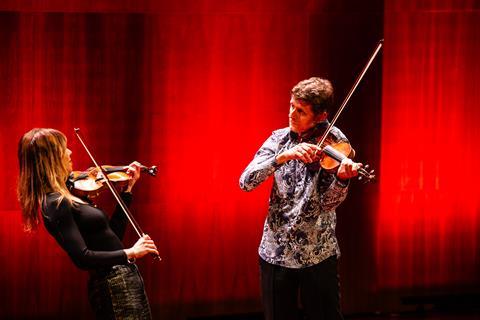
I followed the crowds from one overflowing hall to the next. I heard Tjeerd Top and members of Kamerata Zuid play cowboy tunes and modern jazz takes on Brahms, and La Berge Dramm channelling Tartini into a 21st-century spiral whirl. The most purely magnetic violinist was Al-Kadamani, alongside his lute and percussion ensemble, especially when he was making strangely beautiful sounds using a violin strung and tuned to sound like a cello. Sato joined Kliphuis and an all-star line-up for an extended take on Bach that made no sense at all but was relentlessly, inventively entertaining. I learnt later that the two duelling fiddlers had only met for the first time 15 minutes before going on stage. The Night of the Violin ended well after midnight with all the remaining musicians on stage sent out into the night accompanied by cimbalom riffs from The Third Man.
Kliphuis sees the Utrecht event addressing ‘one of the major threats to the musical world and to our competition: that there are not enough young artists starting to play the violin’. He told me: ‘We are going to invest a lot in turning this around. Last weekend we had 45 kids who had no professional aspirations at all perform at a non-competitive showcase and open podium, not for any prizes – just for feedback and having a good time. And we are investing a lot in helping music teachers around the country.’ Kliphuis dreams that ‘in ten years’ time, all the young kids who performed at the Night of the Violin will have participated in one of these competitions.’
As it turns out, there are even more ambitious plans afoot: in a later announcement made in March, Van de Pol said, ‘We found that there are many violinists who would like to participate in both the Oskar Back and the Young Creatives prize. This is good news, for it means that young musicians are embarking on a musical career and investigating different styles at the same time. To offer them the opportunity to compete for both prizes, we have decided to hold the Netherlands Violin Competition plus the Open Podium, the Showcase and the Violin Orchestra, in even years. We will hold the NVC Young Creatives Prize, for ages 18–26, in odd years beginning in 2025. The Night of the Violin Festival will be held every year. And in advance of the 30th awarding of the Oskar Back Prize in 2026, we will start the celebrations in 2025 by inviting ensembles led by violinists, violists, cellists and double bass players to the Young Creatives party.’
I can’t think of many, or indeed any, similar competitions to the now independent Young Creatives, or examples of classical competitions that are growing this way. What a fantastic way to diversify.
Read: Winners announced for the 2024 Netherlands Violin Competition
Read: ‘Dream big and give yourself time to try things out’ - violinist Tim Kliphuis’s life lessons
Discover more Featured Stories like this in The Strad Playing Hub.
Read more premium content for subscribers here
The number one source for playing and teaching books, guides, CDs, calendars and back issues of the magazine.
In The Best of Technique you’ll discover the top playing tips of the world’s leading string players and teachers. It’s packed full of exercises for students, plus examples from the standard repertoire to show you how to integrate the technique into your playing.
The Strad’s Masterclass series brings together the finest string players with some of the greatest string works ever written. Always one of our most popular sections, Masterclass has been an invaluable aid to aspiring soloists, chamber musicians and string teachers since the 1990s.
American collector David L. Fulton amassed one of the 20th century’s finest collections of stringed instruments. This year’s calendar pays tribute to some of these priceless treasures, including Yehudi Menuhin’s celebrated ‘Lord Wilton’ Guarneri, the Carlo Bergonzi once played by Fritz Kreisler, and four instruments by Antonio Stradivari.

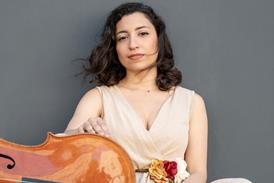
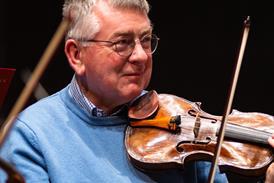
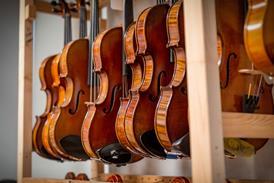
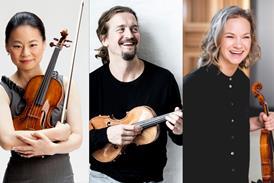
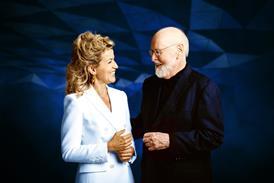
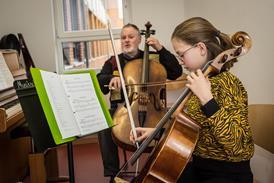
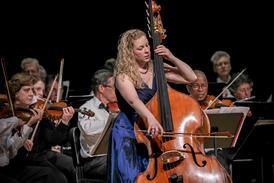

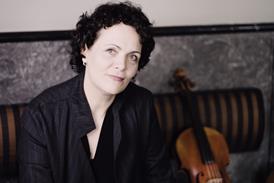
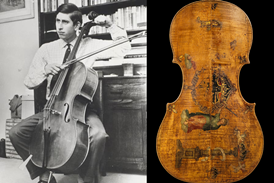
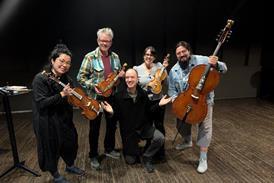
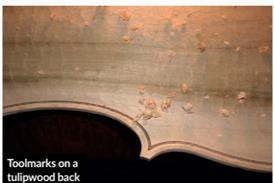
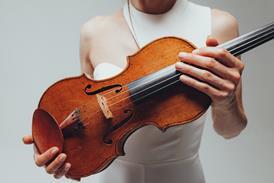
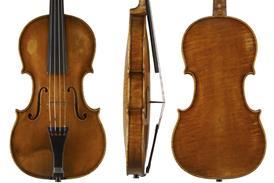























No comments yet